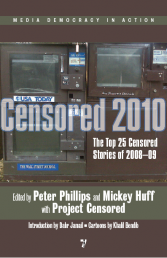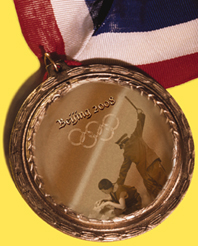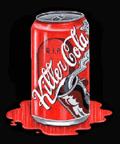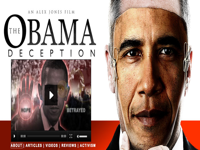Posts Tagged ‘putin’
It’s post-elections time in Kenya. Do you remember Bush’s election and the Florida situation? Or the manipulated elections in ucraina in 2004? Or the manipulated elections in Iraq in 2005? Or those of Putin in these weeks?
Kenya: Dec 2007
Someone could speak about legality in Kenya? Violations of freedom and human rights: this is Kenya now.
BBC reported on 30 Dec that Kenya’s electoral commission chief has been prevented from announcing the final results of disputed presidential polls by opposition supporters.

Samuel Kivuitu was heckled and, as scuffles broke out, had to be led away from the Nairobi briefing by police. Opposition leader Raila Odinga earlier called on President Mwai Kibaki to admit defeat in the elections and accused him of electoral fraud.
The vote count had already been halted, sparking violence around the country. At least 10 people have reportedly died since the vote. Mr Odinga Orange Democratic Movement on Sunday urged the Electoral Commission of Kenya (ECK) to carry out a full review of the results, which correspondents say could take days.
“I wish to appeal to President Mwai Kibaki to acknowledge and respect the will of the people of Kenya and honourably concede defeat,” Mr Odinga said.
Ucraina: Apr 2007
Someone could speak about legality in Ucraina? Violations of freedom and human rights: this is Ucraina now.Israel Shamir reported on April 2007 that there is a coup d’état in Ukraine. Yuschenko means putsch. We will not be able to make right decisions until our collective mind absorbs this fact.
A protégé of the US, Yuschenko seized power illegally, and now that the Ukrainian people with their common sense managed to overcome the consequences of his old Orange coup, he intends to stage another one. Presidents have no right of disbanding parliaments. If they do, they belong to the same kind as Lucius Cornelius Sulla, Yeltsin, and Hitler. They also ascended to power in a more or less legitimate way, but later became putschists and dictators. Yuschenko is trying to become a dictator.

All of Yuschenko’s tenure has been illegitimate from the start to the present day. The people of Ukraine elected Yanukovich at the 2004 elections. The US activists and their Polish and German allies were discontent with the choice – they organized turmoil and confused Ukrainians with empty talking about “falsifications at the elections”, and finally installed Yuschenko as the President. Yanukovich showed a lack of will in 2004 by submitting to the Western dictate. Since then, Ukraine has endured and learned a lot. The people are disappointed by the West’s creature. They got rid of the Orange politicians and returned the power to Yanukovich. Only Yuschenko is still there somehow. When it became obvious that his bosses’ plan to have the German and the US armies deployed near Smolensk is about to fail, he opted for a coup.
Russia: Dec 2007
We wrote a lot about Russia in our articles “Medvedev: new zar of politics and economy“, “Russia’s government: “a department in the Kremlin Corporation”” and overall about elections in “Russia’s elections: Putin gets over 60%“.

Guardian reported on Dec 2007 that european election monitors today accused the Kremlin of manipulating the Russian parliamentary elections in which Vladimir Putin’s party secured a landslide victory.
Luc van den Brande, who headed the delegation from the Council of Europe’s parliamentary assembly, said officials had brought the “overwhelming influence of the president’s office and the president” to bear on the campaign, and that “administrative resources” had been used to influence the outcome.
Goran Lennmarker, of the Organisation for Security and Cooperation in Europe, said it was “not a fair election”.
USA: Nov 2007
Usa are artists of deception. In the last 10 years we saw every kind of deceit in their “affairs”.
We can read a neutral report for Bush’s deceits from Wikipedia: The United States presidential election of 2000 was a hard-fought contest between Democratic candidate Al Gore, then vice president, and Republican candidate George W. Bush, governor of Texas and son of a former president. Bush narrowly won the November 7 election, with 271 electoral votes to Gore’s 266. There were several important issues in this election, including the role of the United States in international affairs, the economy, and morality, but more attention is usually paid to the election itself, which features a controversy over who won Florida’s 25 electoral votes, the recount process in that state, and the issue of the popular vote.
In the American system of presidential elections, the electoral vote system determines the winner, and Bush won this count, although Gore received more popular votes.
It was the third time in American history that a candidate won the vote in the Electoral College without receiving a plurality of the popular vote; it also happened in the elections of 1876 and 1888. In 1824 John Quincy Adams received a plurality in neither the popular vote nor the electoral college vote and was selected President by the U.S. House of Representatives.
Iraq: Jan 2005
Iraq now is the nobody country. Elections manipulated by USA in order to obtain the total control of iraqi oil and its important geopolitical position against Iran, Europe, Russia.
Lunadicarta wrote in 2005 that
The media theater called the Iraqi election is under way. U.S. television anchor people are broadcasting live from Baghdad, breathlessly describing the preparations for Sunday’s display of so-called democracy.
It is important to emphasive the circumstances under which this election is being held. More than 150,000 U.S. troops occupy the country, patrolling the streets with guns trained on Iraqi civilians. Iraq is under a state of emergency, with expanded police powers and a curfew.
This is and election at gunpoint, which will be supervised by U.S. Ambassador John Negroponte. Negroponte built an impressive resume as a brutal enforcer of U.S. policy through murder, rape, and torture. Negroponte served as U.S. Ambassador to Honduras from 1981-1985; a period during which Honduras was the launching pad from which the Reagan administration conducted its violent attacks on the people of Nicaragua, El Salvador, and Guatemala. The U.S-backed atrocities, which were condemned by the International World Court in the Hague, included kidnappings, rape, torture and killing of suspected dissidents. Reports from the Inter-American Commission on Human Rights in Honduras alleged that Negroponte oversaw the expansion of U.S training camp and military base on Honduran territory, where the U.S. trained Contra terrorists, and where the military secretly detained, tortured and executed Honduran suspected dissidents.
This is the person the Bush Administration would have us believe is going to bring democracy to Iraq.
…
What, then is the purpose of the phony election? It is actually directed at the U.S. public, which is growing increasingly disillusioned with the war. The sole intent of the election is to provide legitimacy for the occupation, to marginalize the resistance movement, and
create an illusion of progress. The election, like the phony transfer of power, will change nothing on the ground in Iraq. On January 31, the day after the election, more than 150,000 U.S. troops will still occupy Iraq, the torture chambers of Abu Ghraib will still be full of Iraqi prisoners, and CIA employee Iyad Allawi will still be the U.S.-appointed dictator.
…
The Iraqi people have already expressed their will; they are overwhelmingly opposed to the occupation of their country. The majority of Iraqi people want the U.S. troops to leave and do not believe that the U.S. and Britain should be involved in holding elections in Iraq, according to several polls.
Many have already cast their ballot against colonial occupation by joining the nationwide uprising. The intelligence chief for the puppet regime in Iraq, General Mohamed Abdullah Shahwani, admitted that the resistance now numbers more than 200,000.
The resistance is made up of many difference forces, with different ideologies and goals. They are united by the determination to free their country from U.S. occupation.
We’ll hope to speak a little bit more about the topic of Geopolitics and USA movements towards the application of the points of the document “Rebuilding America’s Defenses: Strategy, Forces and Resources for a New Century” the Blueprint of the PNAC Plan for U.S. Global Hegemony.
 bush, elections, freedom, Human Rights, iraq, kenya, manipulation, pnac, putin, russia, ucraina, usa
bush, elections, freedom, Human Rights, iraq, kenya, manipulation, pnac, putin, russia, ucraina, usa
Kassandra hits the target! In our article “Russia’s government: “a department in the Kremlin Corporation”” we said “Putin implemented in Russia the basis of the economic and political (and also of information?) power described by Orwell in “1984” and in movies as “V for Vendetta“. Are you thinking yet that Kassandra is fool?“
In this case you won’t kill us if we use BBC and CNN link:
- CNN: ” Putin backs Medvedev as successor“, MOSCOW, Russia (CNN) — Russian president Vladimir Putin has thrown his support behind deputy prime minister Dmitry Medvedev to replace him when he steps down as the country’s leader next year.
- BBC: “Putin sees Medvedev as successor“, Russian leader Vladimir Putin has backed First Deputy PM Dmitry Medvedev to replace him as president next year, Russian media report.
Who is Medvedev? A chairman of Gazprom! But everyone underlines that he is not linked with secret services or KGB…
The prophecy of Kassandra has been realized. And what about the global market? The shares of Gazprom rose of 3%…
 1984, corporation, gazprom, kremlin, life, medvedev, news, orwell, politics, putin, russia, usa
1984, corporation, gazprom, kremlin, life, medvedev, news, orwell, politics, putin, russia, usa
Do you know which is the most powerful holding in Russia?
You could think it’s Gazprom, which wikipedia describes as follows:
JSC Gazprom (RTS: GAZP MICEX: GAZP LSE: OGZD; Russian: ОАО Газпром, sometimes transcribed as Gasprom[1]) is the largest Russian company and the biggest extractor of natural gas in the world. With sales of US$31 billion in 2004, it accounts for about 93 percent of Russian natural gas production; with reserves of 28,800 km³, it controls 16 percent of the world’s gas reserves (as of 2004[2], including the Shtokman field.) After acquisition of the oil company Sibneft, Gazprom, with 119 billion barrels of reserves, ranks behind only Saudi Arabia, with 263 billion barrels, and Iran, with 133 billion barrels, as the world’s biggest owner of oil and oil equivalent in natural gas.[3]
By the end of 2004 Gazprom was the sole gas supplier to at least Bosnia-Herzegovina, Estonia, Finland, Macedonia, Latvia, Lithuania, Moldova and Slovakia, and provided 97 percent of Bulgaria’s gas, 89 percent of Hungary’s, 86 percent of Poland’s, nearly three-quarters of the Czech Republic‘s, 67 percent of Turkey‘s, 65 percent of Austria‘s, about 40 percent of Romania‘s, 36 percent of Germany’s, 27 percent of Italy’s, and 25 percent of France’s. [2] [3] The European Union as a whole gets about 25 percent of its gas supplies from this company. [4] [5]
Apart from its gas reserves and the world’s longest pipeline network (150,000 km), it also controls assets in banking, insurance, media, construction and agriculture.
You could think it’s Severstal, which wikipedia describes as follows:
Severstal (RTS: CHMF MICEX: CHMF) Russian: Северсталь, “Northern Steel”) is a Russian company mainly operating in the steelmining industry, centred in the northern city of Cherepovets. Severstal is listed in the RTS and LSE. As such it is the second largest steel company in Russia, behind Evraz Group. The majority of the company’s stock belongs to Alexei Mordashov. As “White Knight” Severstal was to merge with Arcelor, thus preventing a takeover of Arcelor by Mittal, but the Arcelor deal with Severstal was called off following criticism within the Arcelor board. Arcelor finally merged with Mittal Steel on 25 June 2006 to create Arcelor Mittal.
You could think it’s Norilsk Nickel, which we described in “Corporation-city: the hidden truth” and which Wikipedia describes as follows:
MMC Norilsk Nickel (RTS: GMKN MICEX: GMKN) (Russian: ГМК «Норильский Никель») is a nickel and palladium mining and smelting operator in the Norilsk–Talnakh area, in northern Russia. Norilsk is headquartered in Moscow and is also active in gold, platinum, copper and cobalt. The company is the world’s leading producer of nickel and palladium and is Russia’s leading gold producer. It is ranked among the top four world platinum producers, in association with subsidiary Stillwater Mining Company of Billings, Montana Denver, Colorado. It is ranked among the top ten copper producers.
July 6, 2007 Norils Nickel announced it has acquired about 90 per cent of Canada’s LionOre Mining International Ltd. LionOre is the world’s 10th-largest nickel producer. This takeover (valued in $6.4 billion US) is the biggest acquisition by a Russian company abroad so far.
The company is listed on NASDAQ and the RTS Stock Exchange. According to the company’s English-language website its activity accounts for up to 1.5% of Russia’s current gross domestic product. MMC stands for “Mining and Metallurgical Company”.
On October 2007 we could see the article “Inside The Corporation: Russia’s Power Elite” where Whitmore spoke about “power elite”:
In his mission to restore Russia’s pride and prestige, President Vladimir Putin has repackaged the Soviet national anthem, reinvented patriotic pro-Kremlin youth groups, and revived the cult of the suave KGB officer.
But despite bringing back these old archetypes, Putin isn’t interested in a Soviet restoration. This time around, Russia’s path to greatness lies in a modern authoritarian corporate state. Some Kremlin-watchers have even dubbed the country’s Putin-era ruling elite “Korporatsiya,” or “The Corporation.”
“I like using the term ‘Kremlin, Inc.,'” says Russia analyst Nikolas Gvosdev, a senior fellow at the Nixon Center. “I think there are a number of boardroom strategies that apply to how policy in Russia is developed.”…
…But in reality, Russia is run by a collective leadership — the Kremlin Corporation’s board of directors, so to speak. Putin is the front man and public face for an elite group of seasoned bureaucrats, most of whom are veterans of the KGB and hail from the president’s native St. Petersburg. Together, they run Russia and control the crown jewels of the country’s economy. All key political decisions in Russia, including Putin’s most recent bombshells, are the result of deliberation and consensus among members of a tight-knit inner sanctum many analysts have dubbed “the collective Putin.”
“These are people who have been with Putin from the very beginning,” says Olga Kryshtanovskaya, director of the Center for Elite Studies at the Russian Academy of Sciences Institute of Sociology. “Together they thought up this model of the state and government that is in place now.”…
…Most Kremlin-watchers place four people with Putin at the epicenter of power: two deputy Kremlin chiefs of staff, Igor Sechin and Viktor Ivanov; First Deputy Prime Minister Sergei Ivanov; and FSB Director Nikolai Patrushev…
…They want an authoritarian modernization. They want a strong authoritarian state of the Soviet type without the Soviet idiocy,” says Kryshtanovskaya. “The idiotic Soviet economy and the idiotic Soviet ideology were minuses. All the rest they want to bring back and preserve: a state system without a separation of powers.”If they succeed, the West and the world will be dealing with an even more undemocratic, assertive, and aggressive Russia for a long time to come…
We can now answer to our question posted at the end of “Russia’s elections: Putin gets over 60%“: Putin needs to be the President of Russia probabily for economic reasons. Infact, in October Whitmore wrote:
…As his presidency winds down, Putin isn’t acting like somebody who is preparing to go quietly into retirement.
Speaking to a group of Western academics in September, Putin said he planned to remain influential in Russian politics after his presidency ends next year. And in a speech to the pro-Kremlin Unified Russia party on October 1, he gave the clearest indication yet about how he plans to do so.
…In addition to wielding near-absolute political power, Putin’s inner circle, or board of directors, also controls the commanding heights of the Russian economy…
…Just below the top tier of the Putin elite is a group of leading officials who, while not enjoying the same influence and access as the president’s inner sanctum, are nevertheless considered key players in the system whose interests must be taken into account.
Among them are Vladimir Yakunin, the chairman of Russian Railways; Viktor Cherkesov, the head of the Federal Antinarcotics Agency; Sergei Chemezov, general director of the arms export monopoly Rosoboroneksport; and First Deputy Prime Minister Dmitry Medvedev, who is also chairman of Gazprom’s board of directors.
Deputy Prime Minister Dmitry Medvedev is among Putin’s key players (ITAR-TASS)Other key figures include Yury Kovalchyuk, chairman of the board of directors of Bank Rossiya; Aleksandr Grigoryev, director of Gosrezerv, the state reserve agency; Dmitry Kozak, the regional development minister (and former presidential envoy to the Southern Federal District, which includes Chechnya and the remaining North Caucasus republics); and Deputy Prime Minister Sergei Naryshkin, who is chairman of the board of the Channel One television station and deputy chairman of Rosneft.
Such a concentration of commercial and political might has led to conflicts, despite the group’s ideological homogeneity. This has been most visible recently in Cherkesov’s long-standing and bitter feud with Patrushev and Sechin, which went public in early October. Cherkesov has long coveted Patrushev’s post as FSB chief. Patrushev and Sechin are wary of Cherkesov’s rising clout and Sechin and Sergei Ivanov are also fierce rivals for Putin’s ear and influence in the Kremlin.
…Putin’s Moscow-based team sits atop what Russians call the power vertical, a sprawling pyramid of political and economic might that stretches deep into the country’s far-flung regions and republics.
Provincial governors are appointed by the president, and confirmed by elected local legislatures — which in turn are dominated by Unified Russia. Presidential representatives with sweeping authority keep governors and local officials loyal to the Kremlin line.
Those who cross “The Corporation” can expect to feel the full weight of Russia’s heavily politicized law-enforcement bodies. For those who are ready to play ball with the Kremlin, however, there are spoils.
Through the governors and presidential prefects, the Kremlin controls a vast network of patronage that Kryshtanovskaya calls “a hierarchy that resembles the Soviet state nomenklatura,” in which the Communist Party would dole out coveted posts, privileges, and favors to loyal members.
…Andropov, who led the KGB from 1967 until 1982 when he became Soviet leader, sought to modernize the Soviet economy to make it more competitive with the West, while at the same time preserving an authoritarian political system in which the KGB would have a leading role. The authoritarian modernization he envisioned, Kryshtanovskaya says, resemble the one that carried out by China’s Communist leaders.“Andropov thought that the Communist Party had to keep power in its hands and to conduct an economic liberalization. This was the path China followed,” Kryshtanovskaya says. “For people in the security services, China is the ideal model. They see this as the correct course. They think that Yeltsin went along the wrong path, as did Gorbachev.”
Andropov died in 1984, less than 15 months after becoming Soviet leader, and was never able to implement his modernization plan. But two decades after his death, the group of fresh-faced KGB rookies he once inspired are poised to implement it for him.
…Beyond 2008, analysts say Putin and his team are considering major changes in Russia’s political system to minimize the risk of succession crises in the future.
“The dilemma of the succession of power is one of the main problems facing the authorities since it always causes a crisis,” says Kryshtanovskaya. “They find troublesome direct elections in which all the people vote. They need either indirect elections through some kind of electors or assembly, or a change in the character of the power structures.”
This, of course, would require a major constitutional overhaul. But Dmitry Oreshkin notes that, given the dominant position Putin’s board of directors enjoys, that would not be much of an obstacle.
“Right now this group of people can do anything,” he says. “In this situation, who has the resources to oppose them or to disrupt their plans?”
This article is quite worrying, because it proofs that Putin implemented in Russia the basis of the economic and political (and also of information?) power described by Orwell in “1984” and in movies as “V for Vendetta“. Are you thinking yet that Kassandra is fool?
Already on March 2004, BBC wrote some words about Kremlin Corporation in “Press views “cabinet of bureaucrats”“:
Nezavisimaya Gazeta, the heavyweight broadsheet controlled by businessman-in-exile Boris Berezovsky, says that now, the government is “no more than a department in the “Kremlin corporation”.
People must know what is the truth. In the silence, Russia had successfully implemented what USA aren’t able to do already (but they will succeed soon…)!
 1984, corporation, gazprom, kremlin, life, news, orwell, politics, putin, russia, usa
1984, corporation, gazprom, kremlin, life, news, orwell, politics, putin, russia, usa



 E-mail Subscribe
E-mail Subscribe


































